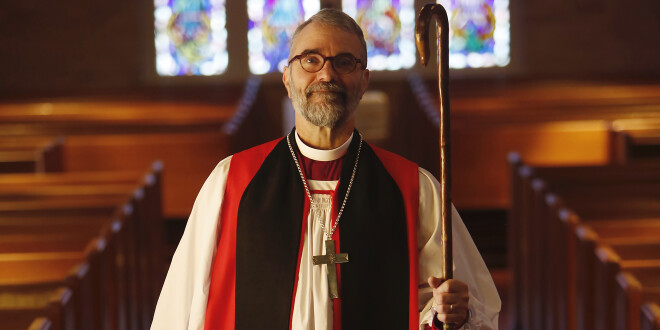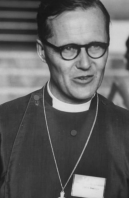Communion Matters: From Diocese of Hong Kong
Throughout my years of international travel, many people were surprised to hear that I was from Hong Kong, China. “There are Christians in China?”, they asked. Christianity was introduced to China by the East Syrian Church in the 7th Century, with little success. The Jesuits arrived in the 16th Century, but it was not until the 19th century when the Protestant missionaries came, that Christianity was spread widely in China.
The first Anglican presence in Hong Kong was in 1843, when The Rev. Vincent Stanton, a British Church Missionary Society missionary, arrived as the first colonial chaplain under British rule. In 1849, Hong Kong became the see of the Diocese of Victoria, which consisted of Hong Kong, China and Japan. In the late 1800’s, missionaries from the USA, Canada, and the UK arrived, and several Anglican/Episcopal dioceses were established across China. Chung Hua Sheng Kung Hui, (the literal translation is Holy Catholic Church in China), the national body of the Anglican/Episcopal tradition, was established in 1912.
The Hong Kong branch existed under various jurisdictions over the past 170 years. In 1998, our church became a Province within the Anglican Communion, the Hong Kong Sheng Kung Hui. There are three dioceses, plus the missionary area of Macau. It consists of a total of 50 parishes and mission churches, 130 schools, and more than 400 social service units, serving the population of almost 8 million in the two cities of Hong Kong and Macau. Although Hong Kong Sheng Kung Hui is the smallest province in the worldwide Anglican Communion, we have played an active part in the international stage. Hong Kong hosted the Anglican Consultative Conference (ACC) in 2002 and then again in 2019. Our immediate past Primate Archbishop Paul Kwong was elected the Chair of the ACC in 2016, a position he will continue to hold until 2023. Our Provincial Music Director, Felix Yeung, has been named the Music Director for the Lambeth Conference, which is scheduled to be held in July 2022.
While the Christian population in Hong Kong is still a minority, only 16% of the general population, much smaller than the Buddhists and the Taoists, yet the church plays an influential role. Through a strong partnership between the parishes, schools, and welfare services run by the Anglican Church, we demonstrate and proclaim Christ’s presence and love in a tangible way. Thanks to the dedication of many faithful parishioners and professional workers, the Anglican Church saw a 35% growth in church membership over the past 15 years. In 2016, the General Synod named “intentional discipleship” as a key area of focus. Since then, many nurture programs were launched, including diocesan-wide programs for Lent, Easter, and Advent. When COVID arrived, leading to the suspension of public worship services, numerous online new ministries began. One of them is a daily 8-minute audio reflection on Bible passages, delivered through social media, which have been met with great enthusiasm.
In recent years, just like many other places around the world, the community of Hong Kong has become increasingly polarized. Strong tensions between political camps, disparity between the haves and haves not, and the deep-seated generational differences on social and political issues, have all led to an intense antagonism within our community. Faced with such challenges, the church makes an effort to reach out to different sectors for dialogue, and promote the need for reconciliation. As a diocese, we have studied Culture of God by The Revd Nadim Nassar, and From Fragmentation to Wholeness in the Realm of Life by Fr Thomas Kwan, to learn about the importance of forgiveness and reconciliation. For Lent this year, we are studying the book, The Way of Love: Turn, written by Presiding Bishop Michael Curry.
Hong Kong is currently going through its biggest crisis since COVID started two years ago. Your prayers will be much appreciated as we persevere through this ordeal. May God continue to use the church in Hong Kong to witness the power and love of Christ in this moment of crisis! May God’s healing power be upon all those around the world who are ill, and with God’s help, may the world be a transformed place when this crisis is over! When international travel resumes, we welcome you to visit us and strengthen our bonds of affection within the Anglian Communion.





